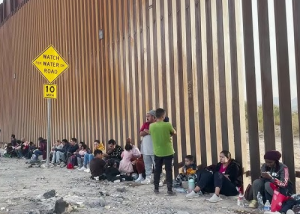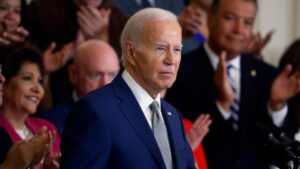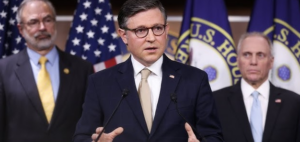The newly unveiled proposals from the Republican-controlled House have set immigration reform and border security as primary objectives for 2025, mirroring the ambitions of the Trump administration. Among the 12 proposed bills, six are dedicated to reforming immigration laws. These measures primarily seek to enhance deportation processes, tighten border regulations, and combat illegal immigration.
**Republican House Priorities for 2025: A Focus on Immigration and Border Security**

**Republican House Priorities for 2025: A Focus on Immigration and Border Security**
The incoming GOP leadership in the House aims to reshape immigration policies as a centerpiece of its legislative agenda.
Key elements of the proposals include mandates for the Department of Homeland Security to detain illegal immigrants charged with theft, thus broadening the scope of enforcement beyond those already convicted. Moreover, individuals charged with or convicted of sex crimes or domestic violence would be prohibited from being released into the U.S. Sanctuary cities and states that opt not to comply with federal immigration directives would face the loss of federal funding. Additionally, any assault by an illegal immigrant on law enforcement officers would serve as grounds for deportation.
Rep. Tony Gonzales (R-TX), representing districts along a significant portion of the southern border, stressed the significance of these initiatives, attributing the ongoing border crisis to the Biden administration's policies. He proclaimed, "The American people demand a 180-degree clean-up of the mess that President Biden created at the border," and asserted Congress's commitment to increasing deportations, particularly for criminal offenders, while enhancing overall border security.
Beyond immigration, the legislative package seeks to address fentanyl-related substances under the Controlled Substances Act and to prohibit temporary halts on hydraulic fracturing. An amendment to the National Voter Registration Act proposes requiring proof of U.S. citizenship for voter registration. Additionally, adjustments to House procedures, including a higher threshold to remove a speaker and streamlined investigations into the Biden administration, are also part of the rules package.
Critics, particularly from the Democratic party, argue that these proposed guidelines skirt traditional legislative protocols. Rep. Jim McGovern (D-MA) articulated concerns regarding transparency, remarking, “So much for openness & transparency,” as Democrats noted the restricted opportunities for amendments, showcasing the partisan dynamics at play.
Speaker Mike Johnson (R-LA) is tasked with garnering solid Republican backing for the outlined 36-page rules package. Upon approval, these highlighted bills will advance to the House floor for voting, potentially influencing the legislative framework for 2025.
The proposals signify a definite pivot in policy, underscoring GOP concentrations on immigration control, law enforcement, and economic oversight. With a split Congress and heightened public interest, the forthcoming legislative discourse is set to ignite intense debate as these initiatives unfold.
Rep. Tony Gonzales (R-TX), representing districts along a significant portion of the southern border, stressed the significance of these initiatives, attributing the ongoing border crisis to the Biden administration's policies. He proclaimed, "The American people demand a 180-degree clean-up of the mess that President Biden created at the border," and asserted Congress's commitment to increasing deportations, particularly for criminal offenders, while enhancing overall border security.
Beyond immigration, the legislative package seeks to address fentanyl-related substances under the Controlled Substances Act and to prohibit temporary halts on hydraulic fracturing. An amendment to the National Voter Registration Act proposes requiring proof of U.S. citizenship for voter registration. Additionally, adjustments to House procedures, including a higher threshold to remove a speaker and streamlined investigations into the Biden administration, are also part of the rules package.
Critics, particularly from the Democratic party, argue that these proposed guidelines skirt traditional legislative protocols. Rep. Jim McGovern (D-MA) articulated concerns regarding transparency, remarking, “So much for openness & transparency,” as Democrats noted the restricted opportunities for amendments, showcasing the partisan dynamics at play.
Speaker Mike Johnson (R-LA) is tasked with garnering solid Republican backing for the outlined 36-page rules package. Upon approval, these highlighted bills will advance to the House floor for voting, potentially influencing the legislative framework for 2025.
The proposals signify a definite pivot in policy, underscoring GOP concentrations on immigration control, law enforcement, and economic oversight. With a split Congress and heightened public interest, the forthcoming legislative discourse is set to ignite intense debate as these initiatives unfold.























